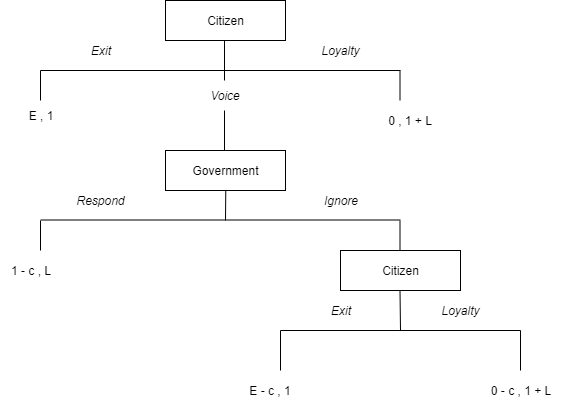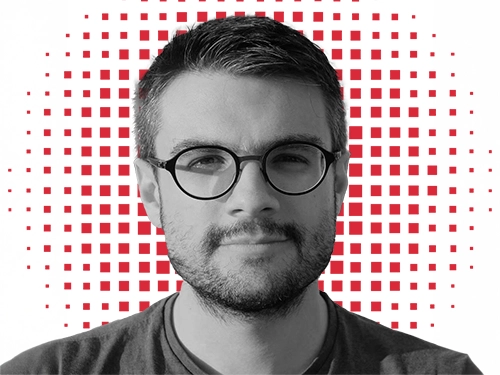A second shot at a PhD
I have an unexpected and exciting professional news to share

✨ TL;DR
• After being unable to defend my initial PhD, mostly because of academic reasons outside my control, to my great surprise, I have restarted in September 2025 working on a PhD — this time at CEREFIGE, Université de Lorraine.
• Under the supervision of Patrice Laroche and Anne Stévenot, I will research the influence of social incentives and networks on people's behaviour and expression in the workplace, with theoretical, empirical, and possibly experimental, tools.
• I will continue my role as a junior partner at Standard Error.
• I will often travel, including for a visiting that is currently not settled and for which I am open to opportunities, in Europe and in Canada, including Québec. Due to safety concerns, I will not travel to the United States.
• I will continue being active on Bluesky at @o.simardcasanova.net. To stay in touch, you can also subscribe to my newsletter.
Dear reader,
Many of you got to know me on #EconTwitter, back in the days when Twitter was not overrun by a neo-Nazi unhinged billionaire and its equally deranged friends. Back then, I was a PhD candidate at the Université de Strasbourg, in France. While I moved partially away from academia during the pandemic and thereafter, many of you assumed that I successfully defended my PhD. The reality is that I did not.
Due to various reasons, mostly academic, all outside of my control, and despite having completed more than 90% of the manuscript, I was unable to defend my PhD. At first, it was a frustration: all this work, and I would not be able to benefit from it as much as I deserved. After a while, I made peace with this reality, and moved on with my life — and my career. But life, or in my case, academia, found a way.
Long story short, to my great surprise, a year ago, I went back to academia. Not as a researcher, but as a research associate: CEREFIGE, the research centre in management of the Université de Lorraine, needed someone with strong R and statistical skills to work on several research projects.

The largest of these projects is an ANR grant called WAVE. WAVE is led by Patrice Laroche and co-led by Anne Stévenot; it studies, through the concept of voice, how employees express themselves in the workplace.

My undefended PhD studied the interplay between monetary and non-monetary incentives in the workplace. From the get-go, it was obvious that the ANR grant and my scientific interests had a strong overlap. Patrice and Anne are also fluent in a wide variety of econometric and causal inference methods, which made the overlap even more significant.
The thing is, the ANR grant has funding for a PhD. During the job interview for the research associate position, Anne and Patrice asked me if I was interested in the PhD funding. Back then, my answer was a clear “no”; as my first try at a PhD resulted in a disappointing and unfair outcome, I was not keen to try again. But it quickly became clear that Patrice and Anne, and CEREFIGE more generally, would give me the room and the support I need to begin expressing the full breadth of my academic potential and vision.
So, a few months ago, I changed my answer to Anne and Patrice's question and I said “yes”. As a result, and after we cleared an impressive number of administrative obstacles, on the 1st of September 2025, I began a three-years long doctoral contract at CEREFIGE, Université de Lorraine. Under the joint supervision of Patrice and Anne, I will research how social incentives in general, and interpersonal social networks in particular, influences the expression and the behaviour of people in the workplace. My work will be theoretical and empirical — and, possibly, experimental. As it was already the case with my first PhD attempt, my research will sit right at the frontier between economics and management, in personnel economics.
Considering I am not a “new” PhD candidate, my scientific productivity will be high from the get-go. I already know how to write a paper, how to present, how to code, how to write a model, and so on. I am also experienced in navigating academic economics, which is in itself a non-trivial skill to learn…
It is safe to say that I am thrilled to resume doing research and to continue working with Anne and Patrice at CEREFIGE. I am well-aware how rare it is to have a second shot at completing a PhD, and even more, to have a second shot with the support CEREFIGE will provide me — which makes me particularly grateful. I am also excited to finally be able to use network theory in my research, a set of theoretical tools I had eyed using for more than ten years.
This second chance also upends my career prospects — for the better. While a traditional academic career was not possible as I never defended my initial PhD, it has, once again, become a possibility. I will have three years to figure out what I want to do with the rest of my life (no pressure!) and to plan accordingly. And contrary to my first attempt, this time, pursuing an academic career is definitely an option I'm considering — it is currently even my preferred option, albeit it is a preference that I weakly hold.
On top of the PhD, I will remain the junior partner at Standard Error. I will continue working with my talented friend Samantha Eyler-Driscoll to provide world-class consulting services to researchers working in the quantitative social sciences to help improve their, or should I say, yours, papers. If you want to learn more about Standard Error and how our expertise can help you write the best version of your papers, do not hesitate to ping me, Samantha, or the company.

During the upcoming three years, I will often travel, both for conferences and for a visiting (for which I do not currently have settled plans, so I am open to suggestions and opportunities), in Europe and in Canada. I already attended my first event in Belval, Luxembourg earlier this month, and it felt good to reconnect with other academics.
I feel obligated to write a few words about the United States. You may remember that, pre-Covid, I flew regularly to the United States to attend academic events. Many of you who are reading this are located there. Even if it would be an obvious development for me to resume travelling to the United States, it is currently categorically out of the question. The United States has become an unsafe country for foreigners, and even more so for queer pro-democracy academics who oppose fascism, authoritarianism, and the egregious attacks on science and freedom of speech that Donald Trump and his minions have unleashed. This is why I have started to shift my focus to Europe and Canada — including Québec, as I am a native French speaker.
Speaking of rapidly decaying places under the assaults of far-right deranged idiots, the fact Twitter is long dead does not mean I have vanished. I am very much active on Bluesky at @o.simardcasanova.net, where you can follow me. I regularly share jokes about economics and academia, conference reports, and other things related to my scientific interests. I do not have much to announce yet, but I am also exploring how Bluesky, and more specifically, its underlying open protocol AT Protocol, can help make science more open, more transparent, and more reproducible.
"It is only a matter of time before Olivier mentions Bluesky again."
— Literally all of my colleagues at the Université de Lorraine
I also have some preliminary ideas to (finally) makes something out of my English-speaking newsletter. I used to run the largest French economics popularization newsletter. But the near-constant harassment I received on social media, mostly by far-left deranged imbeciles, some of them even holding a PhD, ended up discouraging me. I have not given up on engaging publicly, even if it will probably be less oriented towards the general public — and, this time, I plan to hire a lawyer from the get-to to help me deal with the harassment. At the very least, I will use the newsletter to share my personal news. Do not hesitate to subscribe if you want to stay in the loop.
I would like to conclude this announcement with several shoutouts and thanks.
The first shoutout goes to all the people I met through #EconTwitter. I am not exaggerating when I say that every single of you are the reason I never gave up on economics, despite all the challenges I faced. It is sad that Twitter no longer exists, but #EconTwitter literally changed my life for the better. Its legacy will have lasting effects on my career — and, I am sure, on the career of many other economists.
My thanks also extend to Patrice and Anne, to Romain, Vincent, Laurence, Mathieu, and to the many others who, at CEREFIGE, made this second shot a reality.
My final and most special thanks goes to my friend and partner in crime, Louis Fréget. He is the one who sparked this return to academia, by gently and subtly suggesting to me that, maybe, academia could still have something to offer for me. And was he right! Thank you, Louis.
See you on Bluesky, in person at an event, or on my newsletter.
Olivier



